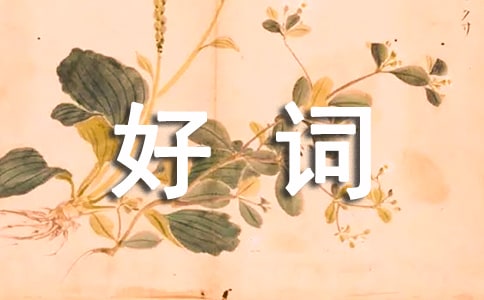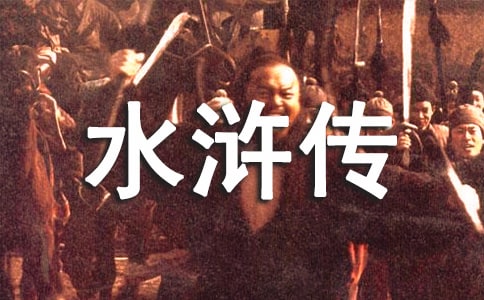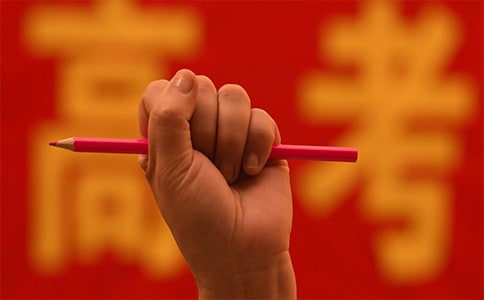高中英语摘抄
高中英语摘抄(一)

Facing the Enemies Within
We are not born with courage, but neither are we born with fear. Maybe some of our fears are brought on by your own experiences, by what someone has told you, by what you’ve read in the papers.
Some fears are valid, like walking alone in a bad part of town at two o’clock in the morning.
But once you learn to avoid that situation, you won’t need to live in fear of it.
Fears, even the most basic ones, can totally destroy our ambitions. Fear can destroy fortunes. Fear can destroy relationships.
Fear, if left unchecked, can destroy our lives. Fear is one of the many enemies lurking inside us.
Let me tell you about five of the other enemies we face from within. The first enemy that you’ve got to destroy before it destroys you is indifference.
What a tragic disease this is! “Ho-hum, let it slide.
I’ll just drift along.” Here’s one problem with drifting: you can’t drift your way to the to of the mountain.
The second enemy we face is indecision. Indecision is the thief of opportunity and enterprise. It will steal your chances for a better future. Take a sword to this enemy.
The third enemy inside is doubt. Sure, there’s room for healthy skepticism. You can’t believe everything.
But you also can’t let doubt take over. Many people doubt the past, doubt the future, doubt each other, doubt the government, doubt the possibilities nad doubt the opportunities.
Worse of all, they doubt themselves.
I’m telling you, doubt will destroy your life and your chances of success. It will empty both your bank account and your heart. Doubt is an enemy. Go after it. Get rid of it.
The fourth enemy within is worry. We’ve all got to worry some. Just don’t let conquer you. Instead, let it alarm you.
Worry can be useful. If you step off the curb in New York City and a taxi is coming, you’ve got to worry.
But you can’t let worry loose like a mad dog that drives you into a small corner.
Here’s what you’ve got to do with your worries: drive them into a small corner. Whatever is out to get you, you’ve got to get it. Whatever is pushing on you, you’ve got to push back.
The fifth interior enemy is overcaution. It is the timid approach to life. Timidity is not a virtue; it’s an illness.
If you let it go, it’ll conquer you. Timid people don’t get promoted. They don’t advance and grow and become powerful in the marketplace. You’ve got to avoid overcaution.
Do battle with the enemy. Do battle with your fears. Build your courage to fight what’s holding ou back, what’s keeping you from your goals and dreams.
Be courageous in your life and in your pursuit of the things you want and the person you want to become.
直面内在的敌人
我们的勇气并不是与生俱来的,我们的恐惧也不是。也许有些恐惧来自你的亲身经历,别人告诉你的故事,或你在报纸上读到的东西。有些恐惧可以理解,例如在凌晨两点独自走在城里不安全的地段。但是一旦你学会避免那种情况,你就不必生活在恐惧之中。
恐惧,哪怕是最基本的恐惧,也可能彻底粉碎我们的抱负。恐惧可能摧毁财富,也可能摧毁一段感情。如果不加以控制,恐惧还可能摧毁我们的生活。恐惧是潜伏于我们内心的众多敌人之一。
让我来告诉你我们面临的其他五个内在敌人。第一个你要在它袭击你之前将其击败的敌人是冷漠。打着哈欠说:“随它去吧,我就随波逐流吧。”这是多么可悲的疾病啊!随波逐流的问题是:你不可能漂流到山顶去。
我们面临的第二个敌人是优柔寡断。它是窃取机会和事业的贼,它还会偷去你实现更美好未来的机会。向这个敌人出剑吧!
第三个内在的敌人是怀疑。当然,正常的怀疑还是有一席之地的,你不能相信一切。但是你也不能让怀疑掌管一切。许多人怀疑过去,怀疑未来,怀疑彼此,怀疑政府,怀疑可能性,并怀疑机会。最糟糕的是,他们怀疑自己。我告诉你,怀疑会毁掉你的生活和你成功的机会,它会耗尽你的存款,留给你干涸的'心灵。怀疑是敌人,追赶它,消灭它。
第四个内在的敌人是担忧。我们都会有些担忧,不过千万不要让担忧征服你。相反,让它来警醒你。担忧也许能派上用场。当你在纽约走上人行道时有一辆出租车向你驶来,你就得担忧。但你不能让担忧像疯狗一样失控,将你逼至死角。你应该这样对付自己的担忧:把担忧驱至死角。不管是什么来打击你,你都要打击它。不管什么攻击你,你都要反击。
第五个内在的敌人是过分谨慎。那是胆小的生活方式。胆怯不是美德,而是一种疾病。如果你不理会它,它就会将你征服。胆怯的人不会得到提拔,他们在市场中不会前进,不会成长,不会变得强大。你要避免过分谨慎。
一定要向这引起敌人开战。一定要向恐惧开战。鼓起勇气抗击阻挡你的事物,与阻止你实现目标和梦想的事物作斗争。要勇敢地生活,勇敢地追求你想要的事物并勇敢地成为你想成为的人。
高中英语摘抄(二)
Abundance is a Life Style
Abundance is a life style, a way of living your life. It isn’t something you buy now and then or pull down from the cupboard, dust off and use once or twice, and then return to the cupboard.
Abundance is a philosophy; it appears in your physiology, your value system, and carries its own set of beliefs.
You walk with it, sleep with it, bath with it, feel with it, and need to maintain and take care of it as well.
Abundance doesn’t always require money. Many people live with all that money can buy yet live empty inside.
Abundance begins inside with some main self-ingredients, like love, care, kindness and gentleness, thoughtfulness and compassion.
Abundance is a state of being. It radiates outward. It shines like the sun among the many moons in the world.
Being from the brightness of abundance doesn’t allow the darkness to appear or be in the path unless a choice to allow it to.
The true state of abundance doesn’t have room for lies or games normally played.
The space is too full of abundance. This may be a challenge because we still need to shine for other to see.
Abundance is seeing people for their gifts and not what they lack or could be. Seeing all things for their gifts and not what they lack.
Start by knowing what your abundances are, fill that space with you, and be fully present from that state of being.
Your profession of choice is telling you of knowing and possibilities. That is their gift.
Consultants and customer service professionals have the ministrative assistants and virtual assistants have an abundance of coordination and time management.
Abundance is all around you, and all within.
See what it is; love yourself for what it is, not what you’re missing, or what that can be better, but for what it is at this present moment.
Be in a state of abundance of what you already have. I guarantee they are there; it always is buried but there.
Breathe them in as if they are the air you breathe because they are yours. Let go of anything that isn’t abundant for the time being.
Name the shoe boxes in your closet with your gifts of abundance; pull from them every morning if needed. Know they are there.
Learning to trust in your own abundance is required. When you begin to be within your own space of abundance, whatever you need will appear whenever you need it.
That’s just the way the higher powers set this universe up to work.
Trust the universal energy. The knowing of it all will humble you to its power yet let the brightness of you shine everywhere it needs to.
Just by being from a state of abundance, it is being you.
富足的生活方式
富足是一种生活方式。它不是你偶尔买来,从架子上拿下来,抹去灰尘用上一两次然后又放回到架子上的东西。
富足是一种哲学,它体现于你的生理机能和价值观之中,并带有自己的一套信仰。无论走路,睡觉,洗澡你都会感受到它,你还要维护并照顾它。
富足并不一定需要金钱。许多人拥有金钱所能买到的一切,但却内心空虚。富足源自内心,其中包含一些重要的自我成分,比如爱,关心,善良和温柔,体贴与同情。富足是一种存在状态,它向处发散,像处于众多星球之间的太阳那样发光发亮。
来自富足的光亮不允许黑暗的出现或存在,除非选择允许它存在。真正的富足不给谎言或通常玩的游戏留有空间,因为富足已经把空间填得太满了。这可能是一个挑战,因为我们仍然需要为了让别人看见而发光。
富足是看到人们的天赋,而不是他的缺陷。所有的事物都要看其天赋而不是缺陷。
从知道自己的富足是什么时开始,填写满空间,全身心投入生活。你的选择已经告诉你。例如:教练能够了解队员并激发其潜力,那是他们的天赋;顾问和客服专业人士通常能够提供很多成功且很具实用性的案例;行政助理和虚拟助理熟识直辖市配合和时间管理的技巧。富足充盈于你的四周以及你的内心。明白富足的内容,爱本色的自己,不要为自己缺少的或是能变得更好的方面爱自己,而是为此时此刻的富足而爱自己。
要处于你已经拥有的事物的富足状态。我保证它们就在那儿,深藏不露却从未远离。将其看成空气,吸入体内,因为它们是你的。放开暂并不富足的东西。把你富足的所有天赋写在橱柜里的鞋盒子上,如果需要就每天早晨拉开橱柜,知道你的天赋都在那儿。
你需要学会信任自己的富足。当你开始处在自己富足的空间之内时,你需要的东西都会在你需要的时刻出现。这就是更高的力量设置这个宇宙动转的方式。要相信宇宙的能量。知道这一点会让你在其力量面前保持谦卑,但也会让你的光亮闪耀在所有需要的地方。只要处于富足的状态,就是做你自己。
高中英语摘抄(三)
Human Life a Poem
I think that, from a biological standpoint, human life almost reads like a poem. It has its own rhythm and beat, its internal cycles of growth and decay.
It begins with innocent childhood, followed by awkward adolescence trying awkwardly to adapt itself to mature society, with its young passions and follies, its ideals and ambitions; then it reaches a manhood of intense activities, profiting from experience and learning more about society and human nature; at middle age, there is a slight easing of tension, a mellowing of character like the ripening of fruit or the mellowing of good wine, and the gradual acquiring of a more tolerant, more cynical and at the same time a kindlier view of life; then In the sunset of our life, the endocrine glands decrease their activity, and if we have a true philosophy of old age and have ordered our life pattern according to it, it is for us the age of peace and security and leisure and contentment; finally, life flickers out and one goes into eternal sleep, never to wake up again.
One should be able to sense the beauty of this rhythm of life, to appreciate, as we do in grand symphonies, its main theme, its strains of conflict and the final resolution.
The movements of these cycles are very much the same in a normal life, but the music must be provided by the individual himself.
In some souls, the discordant note becomes harsher and harsher and finally overwhelms or submerges the main melody.
Sometimes the discordant note gains so much power that the music can no longer go on, and the individual shoots himself with a pistol or jump into a river.
But that is because his original leitmotif has been hopelessly over-showed through the lack of a good self-education.
Otherwise the normal human life runs to its normal end in kind of dignified movement and procession.
There are sometimes in many of us too many staccatos or impetuosos, and because the tempo is wrong, the music is not pleasing to the ear; we might have more of the grand rhythm and majestic tempo o the Ganges, flowing slowly and eternally into the sea.
No one can say that life with childhood, manhood and old age is not a beautiful arrangement; the day has its morning, noon and sunset, and the year has its seasons, and it is good that it is so.
There is no good or bad in life, except what is good according to its own season.
And if we take this biological view of life and try to live according to the seasons, no one but a conceited fool or an impossible idealist can deny that human life can be lived like a poem.
Shakespeare has expressed this idea more graphically in his passage about the seven stages of life, and a good many Chinese writers have said about the same thing.
It is curious that Shakespeare was never very religious, or very much concerned with religion.
I think this was his greatness; he took human life largely as it was, and intruded himself as little upon the general scheme of things as he did upon the characters of his plays.
Shakespeare was like Nature itself, and that is the greatest compliment we can pay to a writer or thinker.
He merely lived, observed life and went away.
人生如诗
我以为,从生物学角度看,人的一生恰如诗歌。人生自有其韵律和节奏,自有内在的生成与衰亡。人生始于无邪的童年,经过少年的青涩,带着激情与无知,理想与雄心,笨拙而努力地走向成熟;后来人到壮年,经历渐广,阅人渐多,涉世渐深,收益也渐大;及至中年,人生的紧张得以舒缓,人的性格日渐成熟,如芳馥之果实,如醇美之佳酿,更具容忍之心,处世虽更悲观,但对人生的态度趋于和善;再后来就是人生迟暮,内分泌系统活动减少,若此时吾辈已经悟得老年真谛,并据此安排残年,那生活将和平,宁静,安详而知足;终于,生命之烛摇曳而终熄灭,人开始永恒的长眠,不再醒来。
人们当学会感受生命韵律之美,像听交响乐一样,欣赏其主旋律、激昂的高潮和舒缓的尾声。这些反复的乐章对于我们的生命都大同小异,但个人的乐曲却要自己去谱写。在某些人心中,不和谐音会越来越刺耳,最终竟然能掩盖主曲;有时不和谐音会积蓄巨大的能量,令乐曲不能继续,这时人们或举枪自杀或投河自尽。
这是他最初的主题被无望地遮蔽,只因他缺少自我教育。否则,常人将以体面的运动和进程走向既定的终点。在我们多数人胸中常常会有太多的断奏或强音,那是因为节奏错了,生命的乐曲因此而不再悦耳。我们应该如恒河,学她气势恢弘而豪迈地缓缓流向大海。(www.kt250.com)
人生有童年、少年和老年,谁也不能否认这是一种美好的安排,一天要有清晨、正午和日落,一年要有四季之分,如此才好。人生本无好坏之分,只是各个季节有各自的好处。如若我们持此种生物学的观点,并循着季节去生活,除了狂妄自大的傻瓜和无可救药的理想主义者,谁能说人生不能像诗一般度过呢。
莎翁在他的一段话中形象地阐述了人生分七个阶段的观点,很多中国作家也说过类似的话。奇怪的是,莎士比亚并不是虔诚的宗教徒,也不怎么关心宗教。
我想这正是他的伟大之处,他对人生秉着顺其自然的态度,他对生活之事的干涉和改动很少,正如他对戏剧人物那样。莎翁就像自然一样,这是我们能给作家或思想家的最高褒奖。对人生,他只是一路经历着,观察着,离我们远去了。
【高中英语摘抄】相关文章:
1.高中英语美文摘抄
2.高中英语作文
3.高中英语绕口令
8.高中英语课前演讲



